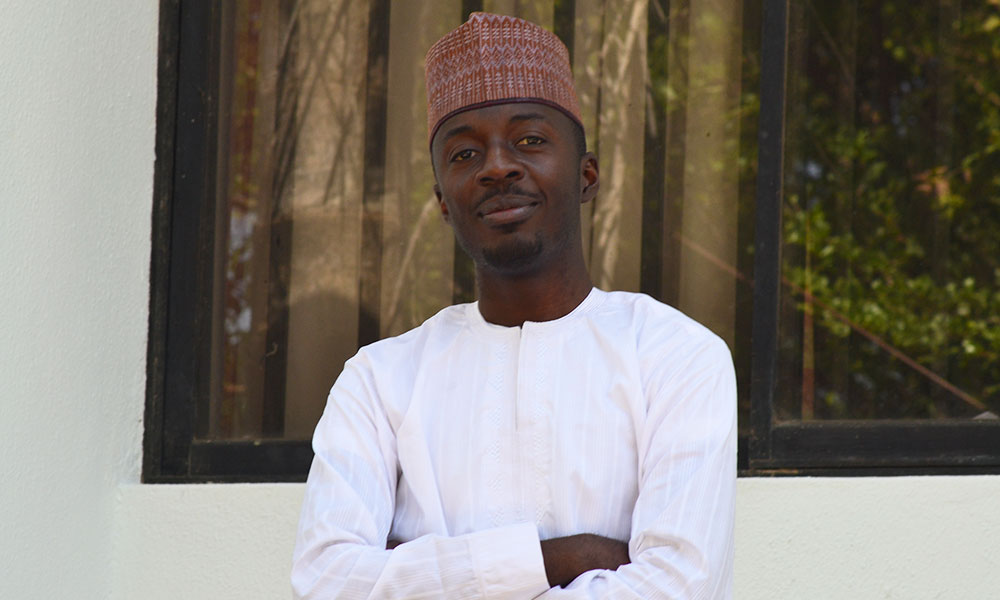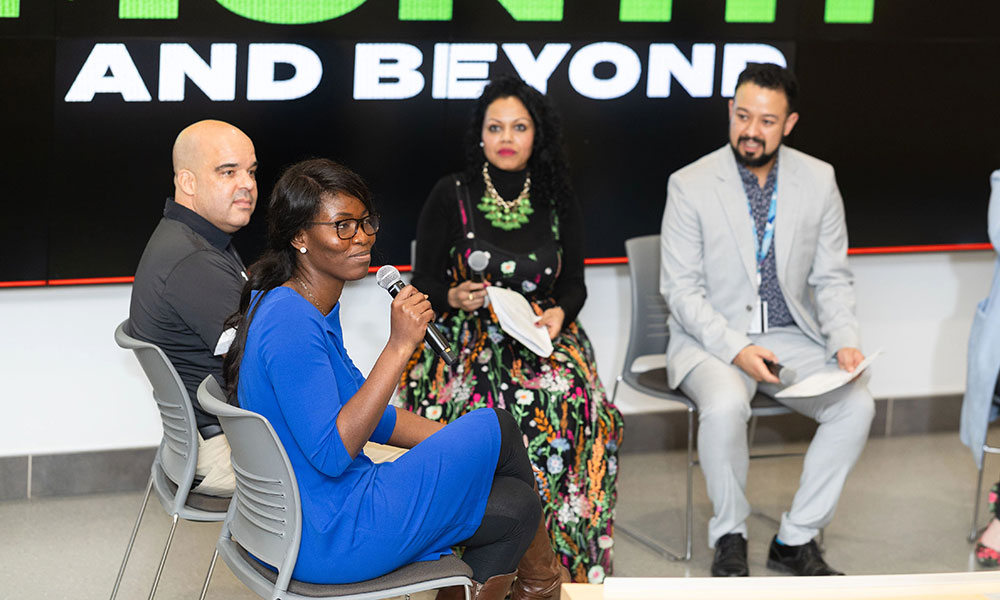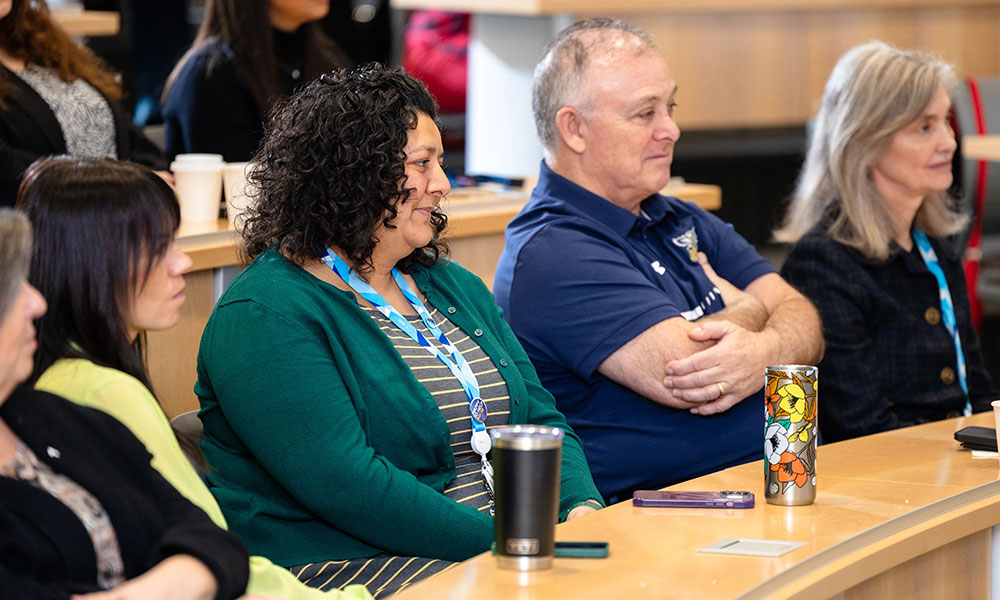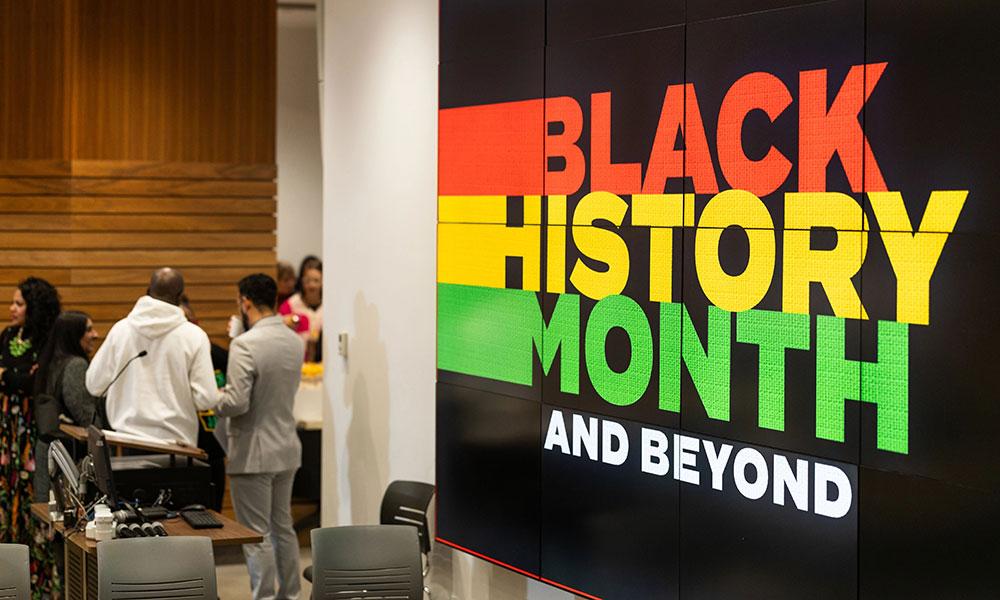Being open-minded is the foundation for change
With a simple question, Ola Odanye shows me how easily unconscious bias can restrict inclusion.
“If you see a young person [with their hair] in locs in a position of leadership,” asks the NAIT Equity, Diversity and Inclusion specialist, “what would you think?”
I pause, trying to recall a Black corporate leader wearing the traditional, ropey hairstyle that, as Del Sandeen writes on beauty authority byrdie.com, “remains both cultural[ly] and historically significant.” In recent years, however, it has led to incidents of discrimination, as described by Gabrielle Kwarteng in Vogue. Nothing comes.
“I would think it’s unusual,” I say, tentatively and uncomfortably.
“Exactly,” Odanye says. “Because, subconsciously, we've been told that that's not the corporate way, right?”
I believe him, because I personally have never thought to question why the image of a loc’d leader, or any similar symbol of true inclusion, might be something unexpected for me.
The key to changing my expectations, says Odanye, is to be open-minded – which I thought I was. But reaching that state requires practice. It takes vulnerability and being uncomfortable if you discover that you’re not as mindful of the lived experiences of other communities as you thought. And it’s a form of growth.
“Being open-minded teaches us new things about others, about the world around us and even ourselves,” says Odanye. “Without this, it will be difficult to understand and appreciate the realities, cultures, perspectives, histories, values and traditions of others.”
As Black History Month ends, I asked Odanye how those from outside the Black community, like me, might take what they’ve learned and build on it. How do I move toward the open mind needed to identify a barrier and ask why it exists? And then, how do I play a part in removing it?
In 2021, NAIT released its first Equity, Diversity and Inclusion Strategy to demonstrate and guide its commitment to creating a more welcoming campus. Download a copy
1. Connect with Black colleagues and friends

The caveat with connection, says Odanye (pictured above), is that you need to have Black colleagues and friends. If you don’t, a question arises, he adds: Why is diversity lacking where you work or socialize? Strive for an answer that can change the situation.
Then, well, be friendly. Pay genuine, appropriate compliments that show you care and that you appreciate what those friends and colleagues bring to the relationship you share. If you have questions related to culture, don’t shy away from them, says Odanye, but also don’t assume they’re yours to ask.
Start with, “Is it OK if I ask you this question?” he suggests.
2. Openly acknowledge and celebrate contributions and achievements
You know when you have an idea at work that gets sent up the ladder without you getting the credit? Odanye believes that happens to those from the Black community much more frequently.
A 2020 study found that the percentage of Black leaders on corporate boards didn't reflect the population at large.
This may be contributing to Canada’s current lack of diversity in leadership, with idea generators being overlooked. A 2020 study by the Diversity Institute at Toronto Metropolitan University, for instance, found that the percentage of Black leaders on corporate boards didn't reflect the population at large.
“Everyday, you work with people who are very hardworking,” says Odanye. “Acknowledge them for what they do.”
3. Listen more and speak less

When people share their challenges, they’re not always looking to others to solve them. They may just want to be heard and understood. But advice tends to follow just the same.
“Our brain is wired to try and look for relatable experiences,” says Odanye. “And then we say, ‘Oh, this happened to me. This is what you should do.’”
Resist the urge; retrain your brain. A person’s opportunity to act will vary based on their circumstances.
“This is particularly important if you are not part of the Black community,” says Odanye. “Listen to what they are saying rather than qualify their experiences based on your own.”
4. Learn from mistakes
It’s inevitable, says Odanye: “You’re going to make mistakes.”
An apology might be needed, but it can be accepted.
In fact, one of the first questions he was asked as a Nigerian newcomer to Canada was whether Nigeria is in Brazil.
It was a teachable moment. Mistakes are OK, says Odanye, because they can advance a conversation. An apology might be needed, but it can be accepted, “and we move on.”
5. Educate yourself

Let’s say you’re a mechanic, says Odanye, and everyone comes to you to help solve their problems, even for something as simple as changing a headlight (there’s YouTube for that). Soon enough, you’ll get worn out by people who can help themselves.
The same goes for learning about the Black community, says Odanye. “Please do not make the mistake of asking Black people to perform the labour of teaching you what they are experiencing and how you should behave.”
6. Speak up and speak out
“Most days, it can be exhausting to be a marginalized person,” says Odanye. “You're trying to represent in a way that helps the next [marginalized] person, and it's not an easy job.”
"Have honest conversations about the trauma faced by Black folks."
Help shoulder the load when you see injustice happen. Stand up and point it out, says Odanye. Speak out against hurtful comments. Encourage others to do the same.
“Have honest conversations about the trauma faced by Black folks and how you can individually or collaboratively fight racism,” says Odanye.
7. Know that change is possible

Odanye knows that the flaws in systems, such as political or educational, won’t be fixed by the time Black History Month arrives next year. But he’s convinced, and confident, that localized change can happen much faster.
“There’s so much that me and you can do,” says Odanye. “Maybe we just start with a small step.”
Or the previous six, he acknowledges.
“Then we’ll see how it goes.”